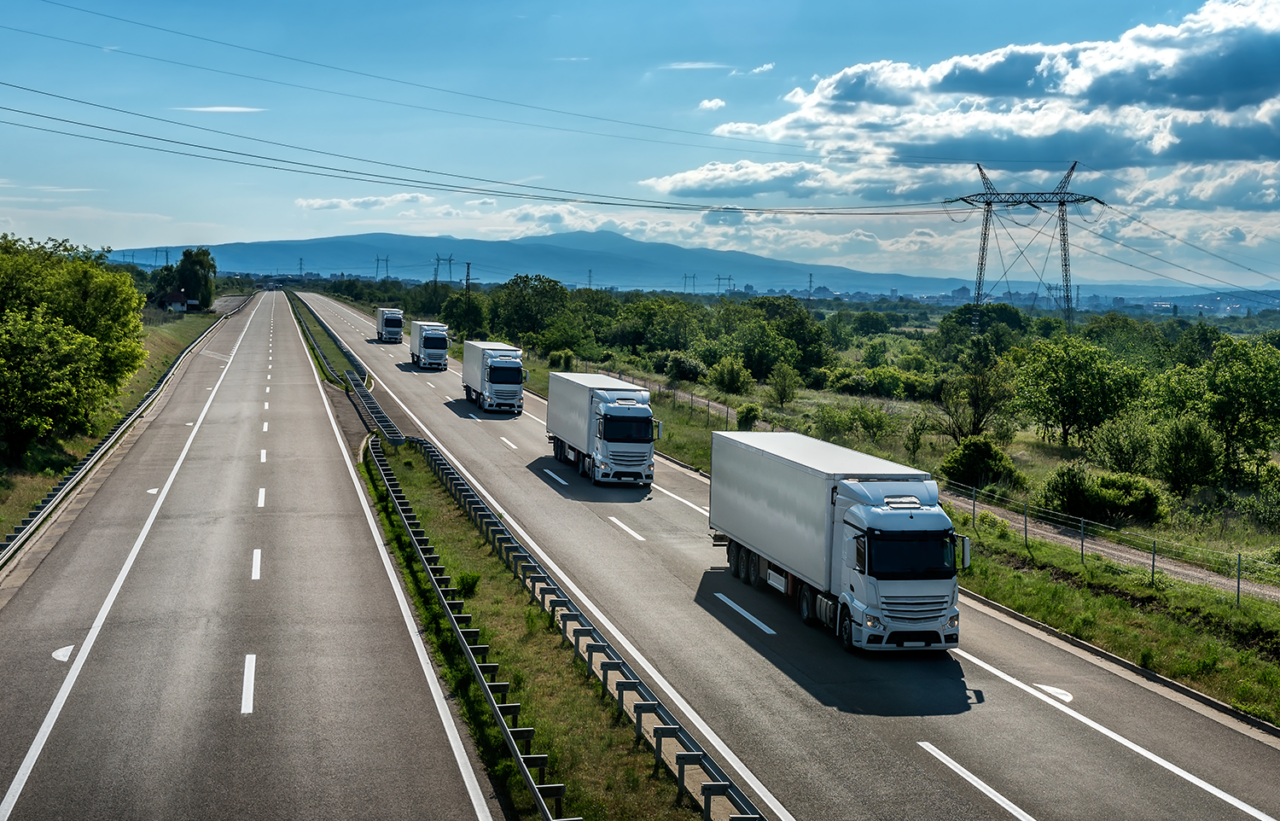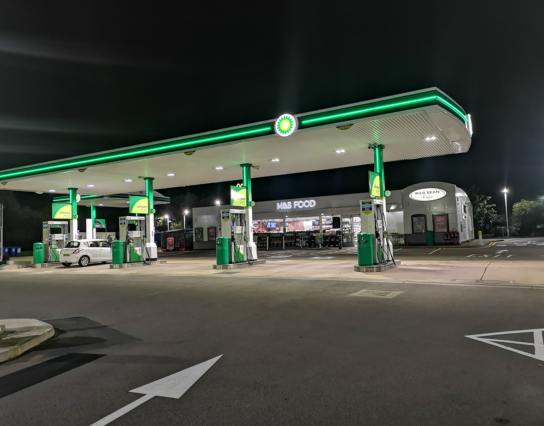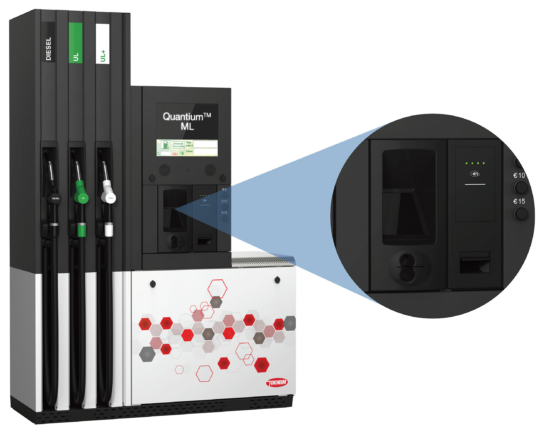The Rise of Sustainable Fleet Depots
The road to net zero is no longer a distant ambition; it has become a pressing reality, reshaping how fleet operators manage their vehicles, infrastructure and energy consumption. As environmental regulations tighten and public expectations increase, the spotlight is firmly on fleet depots to lead the way toward a cleaner, more sustainable future. This article explores how integrated energy solutions, from alternative fuels to solar-powered EV charging, drive change across the sector and establish a new benchmark for low-carbon transport hubs.

The regulatory push towards cleaner air
Fleet managers are navigating an increasingly complex landscape of environmental legislation. Low Emission Zones (LEZs), Clean Air Zones (CAZs), Ultra Low Emission Zones (ULEZs) and Zero Emission Zones (ZEZs) have become commonplace across the UK, each with its own set of rules and penalties. These zones are designed to reduce harmful emissions in urban areas, but also present a logistical and financial challenge for fleet operators. Vehicles that fail to meet the required standards face costly detours or daily charges, prompting businesses to rethink their approach to mobility.
The only long-term solution is to move away from fossil fuels and adopt cleaner alternatives. This shift is about more than compliance. It is about building resilience, reducing costs and demonstrating a clear commitment to sustainability.
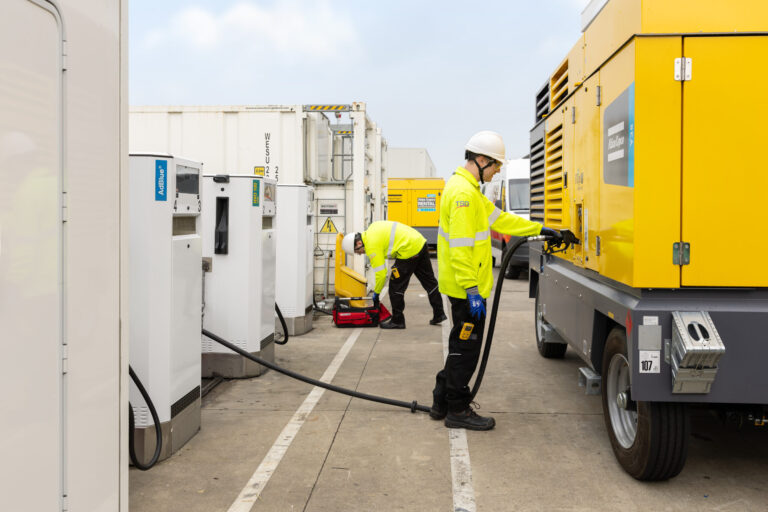
Alternative fuels: bridging the gap to zero emissions
While electric vehicles (EVs) are often seen as the ultimate goal, not every fleet is ready to make the switch in one step. Many operators are taking a phased approach, starting with low-carbon fuels that work within their existing infrastructure.
Hydrotreated Vegetable Oil (HVO) is one such option. Made from sustainable feedstocks like used cooking oil and animal fats, HVO can reduce net CO₂ emissions by up to 90 percent compared to diesel. It requires no engine modifications and can be used alongside traditional fuels, making it a practical choice for fleets looking to cut emissions without major disruption. Royal Mail and Falkirk Council utilise HVO at scale, showing that real progress is possible today.
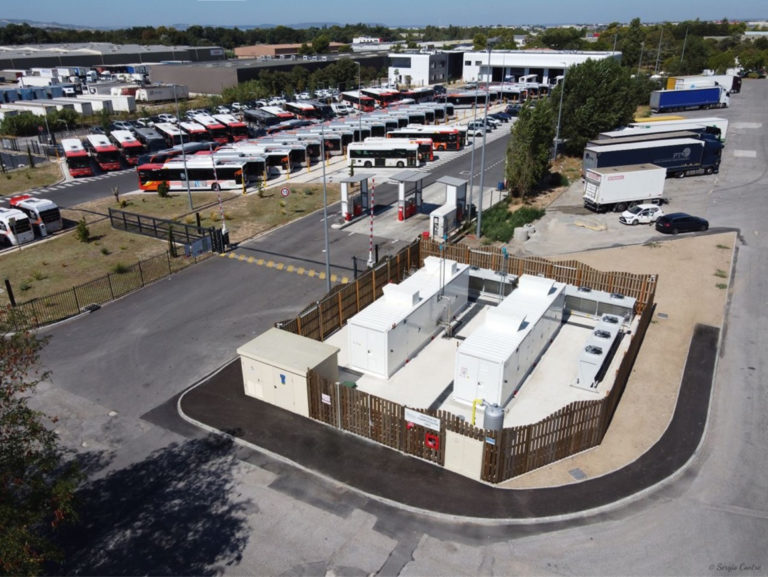
Gas-powered vehicles are another strong contender, particularly for long-haul operations. Compressed Natural Gas (CNG) and Liquefied Natural Gas (LNG) produce fewer emissions than diesel and benefit from a growing refuelling network. Their renewable counterparts, bio-CNG and bio-LNG, take sustainability a step further by capturing methane from organic waste sources such as agricultural residues, food waste and sewage sludge. This methane is purified into biomethane, which is then either compressed or liquefied for use as vehicle fuel.
The production process reduces greenhouse gas emissions and captures methane before it escapes into the atmosphere. Methane is a highly potent greenhouse gas, so converting it into usable fuel delivers a significant environmental benefit. With its higher energy density, Bio-LNG is particularly well-suited for long-distance haulage, offering extended range and faster refuelling times. In contrast, bio-CNG is ideal for regional and urban routes where vehicles return to base more frequently.
As electric and hydrogen technologies evolve, biomethane-based fuels offer a practical and scalable solution for fleet operators aiming to decarbonise without waiting for future infrastructure.
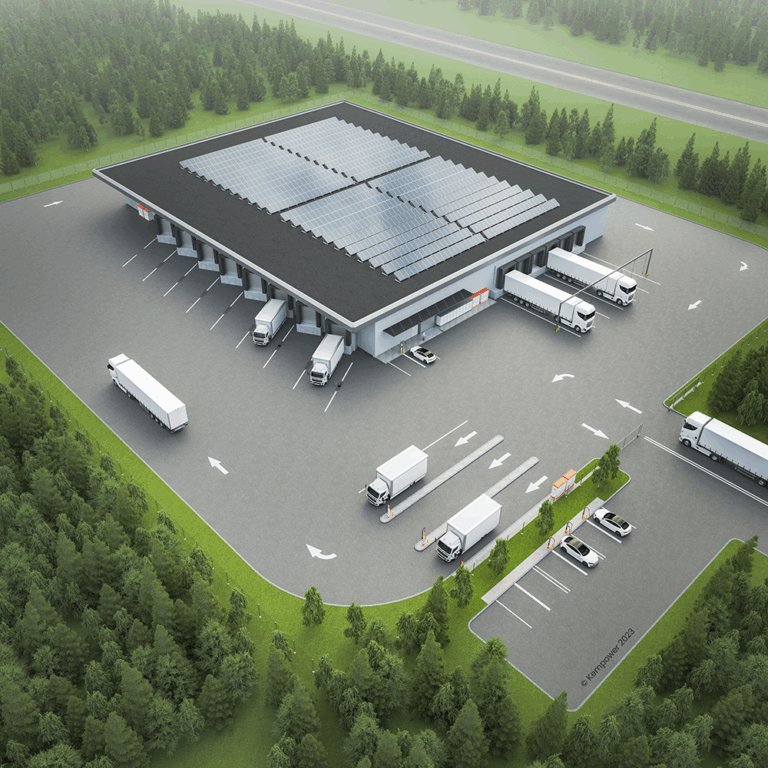
Electrification and the solar-powered depot
As the UK moves closer to its ban on new fossil fuel vehicles, electrification is becoming a central part of fleet strategy. EVs offer lower running costs, reduced maintenance and zero exhaust emissions, making them ideal for urban deliveries and short-haul routes. However, the transition is not just about the vehicles. It is about the infrastructure that supports them.
Fleet depots are evolving into modern energy hubs. Solar panels, battery storage and intelligent charging systems now unite to deliver a more efficient and resilient power supply. By installing solar photovoltaic (PV) systems on-site, businesses can generate clean electricity directly from sunlight, significantly reducing their reliance on the National Grid. This lowers energy costs and protects against market volatility and supply constraints.
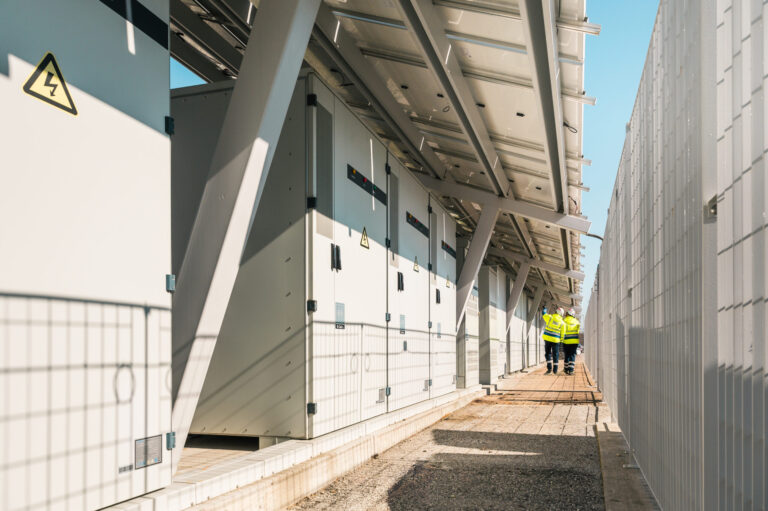
When paired with battery storage, the system becomes even more effective. Excess solar energy generated during daylight hours can be stored in high-capacity lithium-ion batteries and used later, during peak demand periods or low-light conditions. This ensures a steady and predictable energy supply for EV charging and other depot operations, helping to reduce costs and lower carbon emissions.
Advanced energy management systems can further optimise performance by monitoring usage patterns, forecasting demand and automatically balancing energy loads across the site. These systems can also support grid services by exporting surplus energy to the network during high-demand periods, creating new revenue streams and contributing to national energy stability.
This integrated approach improves operational resilience and sends a strong message to customers and stakeholders about a company’s dedication to environmental responsibility.
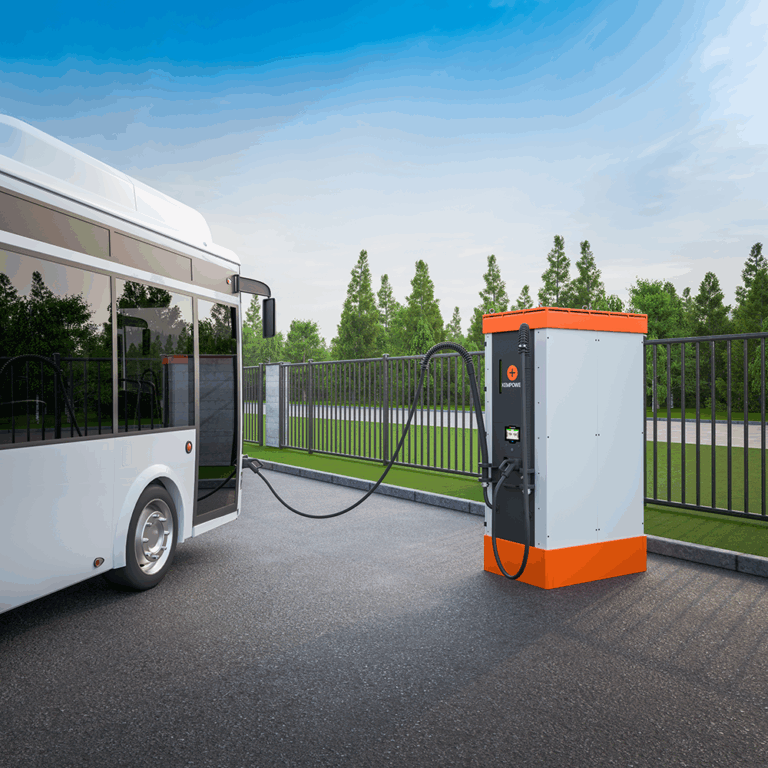
Charging solutions for electric trucks and buses
As fleets electrify medium and heavy-duty vehicles, robust, high-capacity charging infrastructure becomes essential. Unlike passenger EVs, electric trucks and buses require significantly more power and longer dwell times, making depot-based charging the most practical solution. TSG is investing in scalable charging systems designed specifically for commercial vehicles, including high-power Direct Current (DC) chargers capable of delivering up to 350 kW or more. These systems are engineered to support overnight charging, opportunity charging during layovers and future vehicle-to-grid (V2G) capabilities. By combining these solutions with solar generation and battery storage, fleet depots can ensure reliable, cost-effective charging while reducing strain on the grid and accelerating the transition to zero-emission transport.
The role of technology and trusted partners
Transitioning to a sustainable fleet depot is complex, but operators don’t have to face it alone. Companies like TSG UK are playing a vital role in supporting this transformation. With over 30 years of experience in the fuel and energy sectors, TSG delivers complete solutions at every stage, from site surveys and design to installation, commissioning and ongoing maintenance.
Whether it involves installing CNG and LNG systems, deploying EV charge points, incorporating solar and battery storage, or supporting alternative fuels like HVO, TSG provides the expertise and equipment needed to modernise fleet operations. The LOGmaster platform offers full depot control, enabling managers to monitor and manage all energy assets, from fuel pumps to EV chargers, through a single interface.
This level of connectivity improves efficiency, reduces downtime and ensures compliance with evolving regulations. It also gives fleet managers the tools to make informed, data-driven decisions that support environmental and commercial goals.
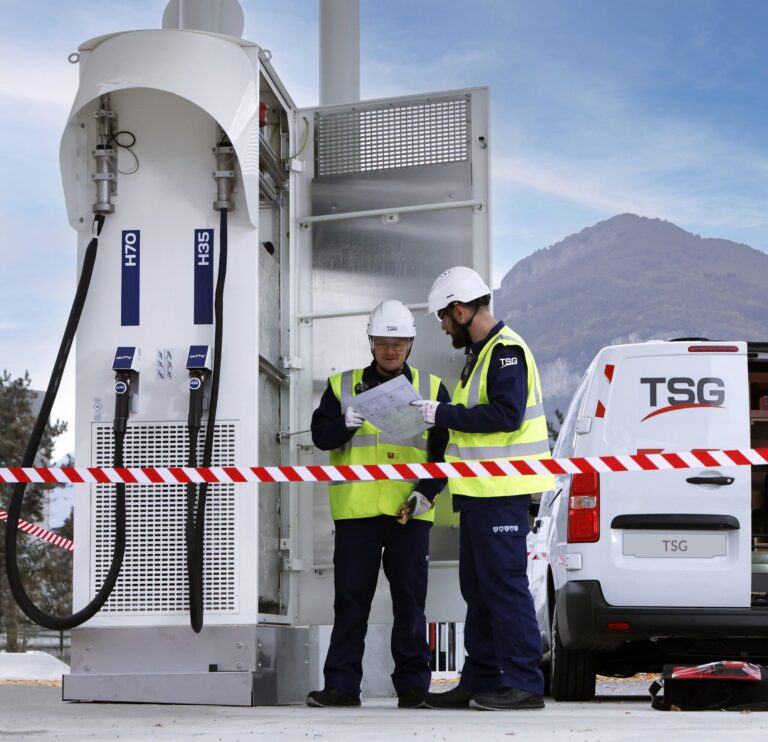
TSG is here to help
TSG UK specialises in addressing the challenges faced by fleet operators by delivering tailored, future-ready solutions. With decades of experience in the fuel and energy sectors, TSG works closely with fleet owners to unlock the full potential of their sites and financial resources.
As a leading engineering, procurement and construction (EPC) contractor, TSG manages every aspect of the transition to sustainable energy, from initial surveys and design to final commissioning, ensuring projects are delivered on time and within budget. Their comprehensive offering is backed by a robust after-sales service, with a large team of skilled engineers and advisers available seven days a week.
Whether it’s routine maintenance or emergency support, TSG ensures that every customer receives the assistance they need to keep operations running smoothly and reliably.
With TSG as a trusted partner, fleet operators can lead the transition to cleaner transport and create depots built for long-term success.
Author: Cheryl Ashton
